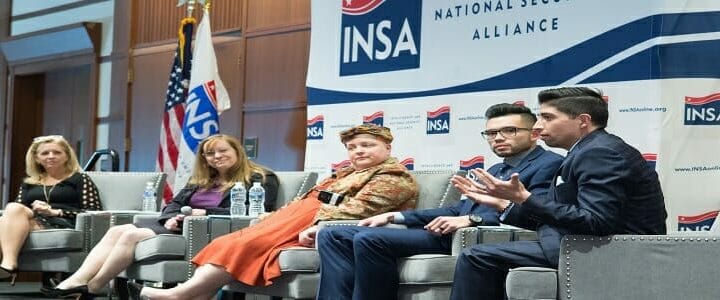This week, the Intelligence and National Security Alliance (INSA) held an event discussing “The Changing Face of Acquisition.” In a panel discussion, professionals from the National Security Agency (NSA), Office of the Director of National Intelligence (ODNI), Defense Intelligence Agency (DIA), KeyW, and Noblis all offered their perspectives on the technologies, processes, and people the intelligence community will need for the future. One thing is for sure: the landscape is changing at a rapid pace. Here are three things your organization needs to keep in mind if you’re hoping to stay effective in your mission and attract the talent of the future.
Acquisition Leadership in the IC Is Aging
Right now, about 50% of the IC workforce is within five to ten years of retirement. Another 30-40% have only been on the job for about four or five years. This leaves a huge knowledge and leadership gap in the middle. As panelist Kelly Gaffney of ODNI pointed out, that means there are not many folks with 15 or 20 years of experience—people who really know the tricks of the trade. Most contracting officers, systems engineers, systems integrators, project managers, testers, and recruiters (to name a few) are either still a little green—or in leadership positions that remove them from the day-to-day operations with junior colleagues.
Organizations need to incorporate mentorship programs, leadership training, or other ways for current leaders to pass on their knowledge and skills to the next generation of IC acquisition professionals. Remember, the loss of this expertise will not only create a costly logistical nightmare, it will compromise the ability to innovate, respond to current threats, and bring on qualified talent. In other words, the mission of the IC is at stake.
“Incentives” and “More Money” Are Not Always the Same Thing
As we know, recruiting talent among millennials presents new challenges. While pay is always important, even a good salary and benefits will not keep people at a job. Things like company culture, flexible hours, access to the latest technology, and room for growth are key to hiring and retaining millennials. As Joey Dahl of DIA put it, many millennials value career development as much as they do their salary. Some agencies have begun to offer loan repayment as a job incentive; this could be a very enticing offer to young people starting their career with crushing student debt.
But capturing young people isn’t as simple as offering cushy benefits. The IC may have to break down some ideological barriers. Recently Google employees wrote a letter of complaint about the company’s partnership with the DoD on the grounds that “Google should not be in the business of war.” The battle for the hearts and minds of young Americans is in full swing. Not only does the IC need to be concerned about having technology and incentives that excite young employees, they need to show why the mission is compelling. Employers must find more ways to reach out to students—in high school or perhaps younger—to plant the seed early that protecting our nation is an honorable and rewarding career.
Public-Private Partnership is Key to innovation
The work of the IC—and defense community as a whole—does not succeed through government agencies alone. The hand-in-glove relationship between industry and government will continue to be as important in the future as it is now. Hector Cevallos of KeyW told the panel how he has moved between industry and government throughout his career, and how that has been essential to his learning and success. Other attendees echoed how efforts like the USAF’s Education With Industry (EWI) program have strengthened relationships and given both public and private the opportunity to learn from each other.
Remember, acquisition isn’t just the “opening act” for the rest of the IC. As Kelly Gaffney, puts it, “I don’t like to think of acquisition as ‘mission-critical.’ I like to think of acquisition as ‘mission.’”
The IC goes to work each day to keep America and her people safe. By bringing in the right people, technology, and processes, you’re fulfilling the mission—now and for the future.



